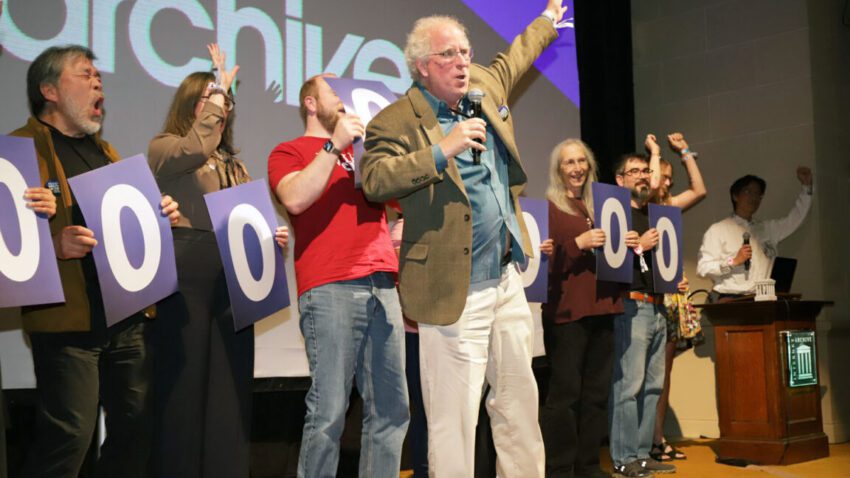
internet archive s legal fights are over The Internet Archive has reached a significant milestone, but its founder reflects on the toll of recent legal battles.
internet archive s legal fights are over
Milestone Achievements of the Internet Archive
This month, the Internet Archive’s Wayback Machine achieved a remarkable milestone by archiving its trillionth webpage. This achievement not only underscores the Archive’s commitment to preserving the digital landscape but also highlights its role as a vital resource for researchers, historians, and the general public. To commemorate this momentous occasion, the nonprofit organization invited its extensive network of over 1,200 library partners and 800,000 daily users to celebrate together.
In recognition of its contributions to safeguarding online heritage, the city of San Francisco declared October 22 as “Internet Archive Day.” This proclamation serves as a testament to the Archive’s impact on the community and its ongoing mission to provide free access to knowledge and information. Furthermore, the Archive’s significance has been acknowledged at the federal level, as Senator Alex Padilla (D-Calif.) recently designated it as a federal depository library. He emphasized that the Internet Archive is a “perfect fit” for expanding access to federal government publications in an increasingly digital landscape.
The Legal Battles: A Dark Chapter
Despite these achievements, the Internet Archive has recently emerged from a series of intense copyright battles that posed a significant threat to its existence. These legal challenges have been arduous and have left a lasting impact on the organization. The Archive faced lawsuits from major publishers and copyright holders who argued that its practices infringed on their intellectual property rights. The legal disputes centered around the Archive’s “Open Library” initiative, which aimed to provide free access to a vast collection of digital books.
As a result of these legal battles, the Internet Archive was forced to remove over 500,000 books from its Open Library. This significant reduction in available materials has raised concerns about the future of digital access to literature and knowledge. Brewster Kahle, the founder of the Internet Archive, expressed his dismay at the outcome, stating, “We survived. But it wiped out the Library.” This sentiment encapsulates the profound sense of loss felt by the Archive’s community and its supporters.
The Impact on Users and Researchers
The removal of such a substantial number of books from the Open Library has far-reaching implications for users and researchers who rely on the Internet Archive for access to information. Many scholars, students, and casual readers have come to depend on the Archive as a valuable resource for their research and reading needs. The loss of these books not only limits access to knowledge but also raises questions about the future of digital libraries in an era dominated by copyright concerns.
For researchers, the Internet Archive has been an indispensable tool for accessing historical documents, rare texts, and a wide array of scholarly materials. The Archive’s mission to provide free access to information aligns with the principles of open knowledge and democratization of education. However, the recent legal challenges have highlighted the fragile nature of this mission in the face of aggressive copyright enforcement.
Community Support and Advocacy
In light of the challenges faced by the Internet Archive, community support and advocacy have become increasingly important. Many users and supporters have rallied around the organization, emphasizing the need for accessible digital resources. The Archive’s commitment to preserving the digital heritage of the internet has resonated with individuals who value open access to information.
Advocacy groups and library associations have also voiced their concerns regarding the implications of copyright enforcement on digital libraries. The Internet Archive’s situation serves as a cautionary tale for other organizations that seek to provide free access to knowledge. The legal landscape surrounding copyright and digital content continues to evolve, and many fear that the current trajectory could stifle innovation and limit access to information for future generations.
Legal Precedents and Future Implications
The legal battles faced by the Internet Archive have set important precedents for the future of digital libraries and online access to information. As copyright law continues to adapt to the digital age, the outcomes of these cases may influence how other organizations approach similar initiatives. The Archive’s experience underscores the need for a balanced approach to copyright that considers the public interest in access to information alongside the rights of copyright holders.
Many legal experts and advocates are calling for reforms to copyright law that would better accommodate the realities of the digital landscape. The challenges faced by the Internet Archive serve as a reminder that the current copyright framework may not adequately address the complexities of digital content distribution and access. As discussions around copyright reform continue, the Internet Archive’s story will likely remain a focal point in the debate.
The Future of the Internet Archive
Looking ahead, the Internet Archive faces both challenges and opportunities. While the recent legal battles have taken a toll on its resources and collections, the organization remains committed to its mission of providing free access to knowledge. The support from its community and the recognition from local and federal authorities provide a solid foundation for future growth.
As the Internet Archive continues to evolve, it may explore new partnerships and collaborations to expand its offerings. The designation as a federal depository library opens doors for increased access to government publications, which could enhance the Archive’s role as a comprehensive resource for researchers and the public.
Innovative Solutions and Technology
In addition to expanding its collections, the Internet Archive may also leverage innovative technologies to enhance user experience and accessibility. The organization has a history of embracing technological advancements to improve its services. For example, the Wayback Machine has continually evolved to provide users with a more intuitive interface and improved search capabilities.
Furthermore, the Internet Archive may explore partnerships with educational institutions, libraries, and technology companies to develop new tools and resources. By collaborating with stakeholders in the education and technology sectors, the Archive can continue to fulfill its mission while navigating the complexities of copyright law.
Conclusion: A Call for Continued Support
The Internet Archive’s journey is a testament to the importance of preserving digital heritage and ensuring access to knowledge for all. While the organization has faced significant challenges, its recent achievements and community support highlight the enduring value of its mission. As the legal landscape surrounding copyright continues to evolve, it is crucial for advocates, users, and policymakers to come together to support the principles of open access and the democratization of information.
As Brewster Kahle reflects on the losses endured during the legal battles, it is clear that the Internet Archive’s story is far from over. The organization remains a vital resource for millions, and its commitment to safeguarding the world’s online heritage is more important than ever. The future of the Internet Archive will depend on the collective efforts of its community and supporters to advocate for a more equitable digital landscape.
Source: Original report
Was this helpful?
Last Modified: November 3, 2025 at 5:36 pm
1 views














